2024 Phonics Update
Jolly Phonics offers a fun, child-centred approach to teaching English through letter sounds, which is especially important in Ethiopia where all secondary school subjects are taught in English — yet students often lack even the basic foundations under traditional methods focused on alphabets and dictation.
Together We Learn began working with Jolly Phonics in 2013, initially through our ‘Libraries and Literacy’ project. The aim has always been to improve English literacy skills among children in Ethiopia by training their teachers in the Jolly Phonics method.
Our reach so far…
teachers trained in the phonics method
students reached with improved literacy skills
certified Ethiopian trainers
Training Teachers
We now deliver the training in direct partnership with the Amhara and Oromia Regional Education Bureaus. Their support in covering transport and subsistence costs for trainees enabled us to double the number of teachers trained this year. In total, our team trained 1,130 teachers from over 500 schools across both regions.
Following steady progress in the Amhara region, we delivered our first major expansion into the Oromia region in October 2023. Thanks to the support of the Oromia Education Bureau, we increased the number of trained teachers from just 12 last year to 700 this year.
The training equips Grade One teachers with the tools to teach English effectively using the Jolly Phonics method. Ensuring high-quality English instruction at this early stage lays the foundation for literacy development throughout a child’s education. This is especially vital from secondary level, where all subjects are taught in English.
The training is delivered in two phases: an initial three-day training before the first semester, followed by a two-day refresher at the start of the second semester. This structure allows teachers to develop their skills, implement the method in their classrooms, and return with feedback and questions to deepen their understanding.
Notably, this was also the first year we provided a one-day sensitisation session for school directors. Raising awareness among school leadership ensures teachers are supported to implement the methodology in their classrooms, allowing students to fully benefit from the programme.
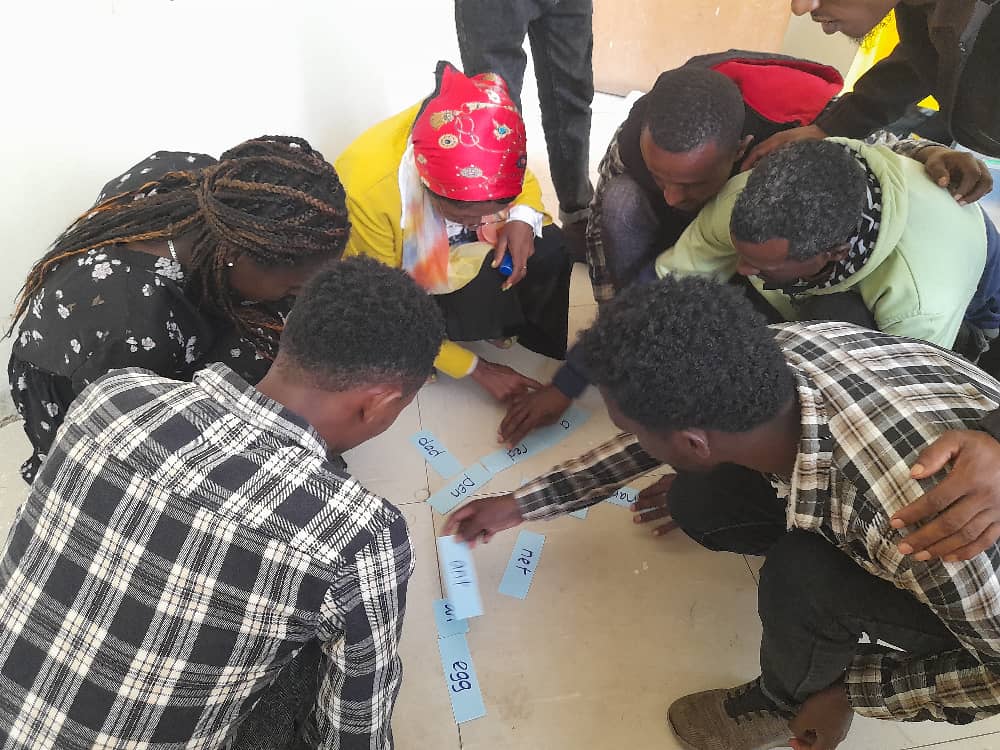
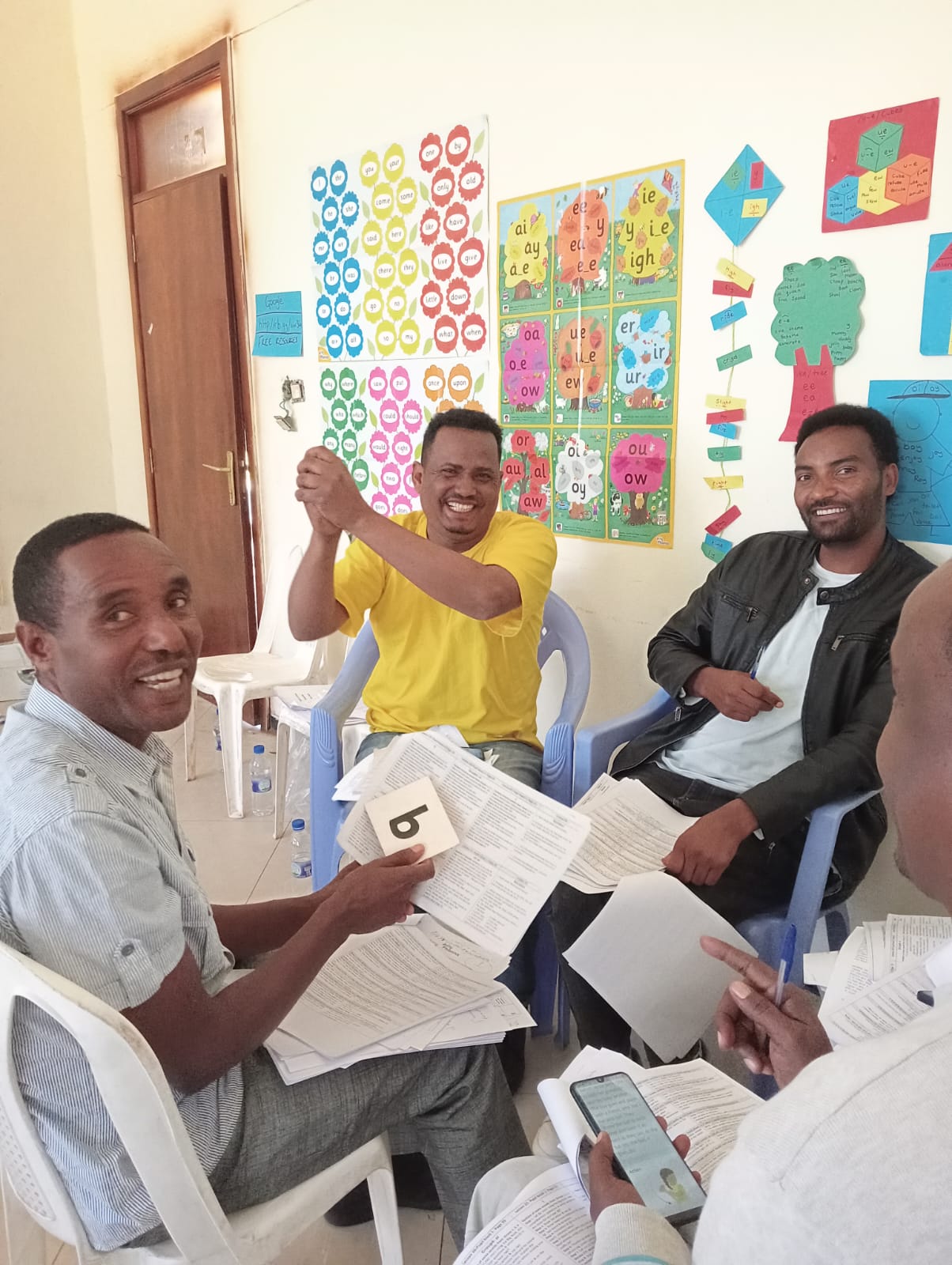
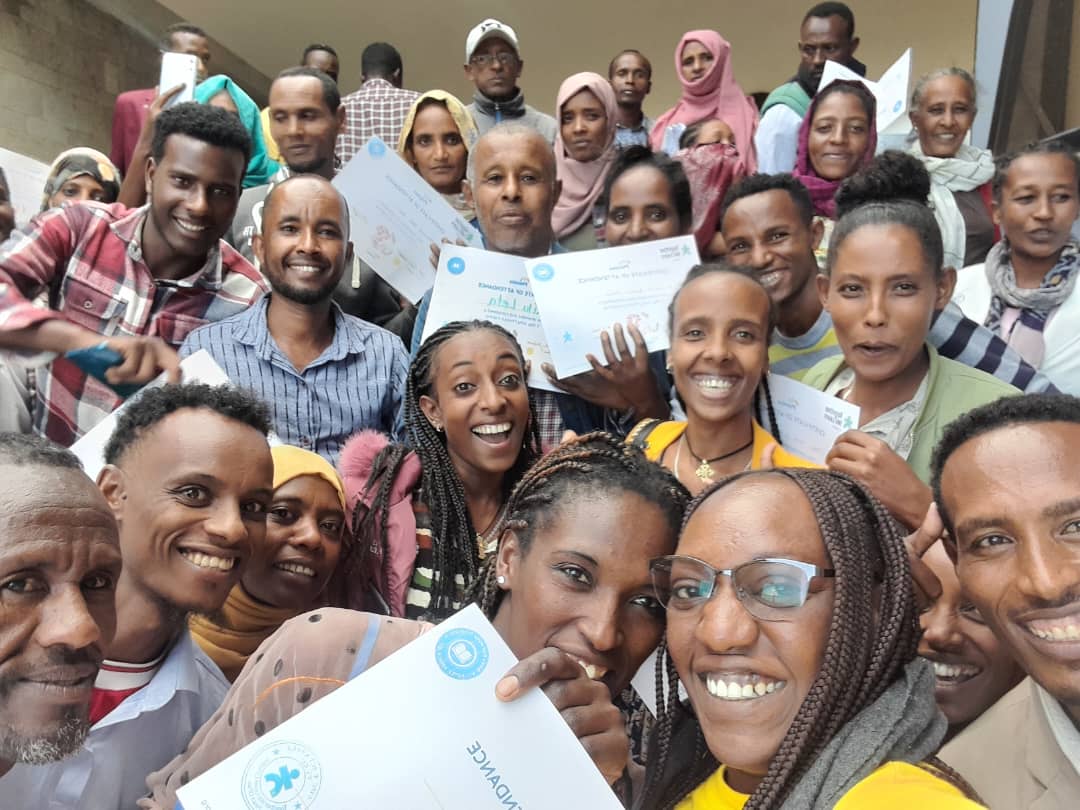
Supporting Teachers to Implement
The Education Bureaus also funded training for 462 education professionals who will support and monitor the teachers. These include local education supervisors (who regularly visit schools to assess teaching and learning), English curriculum experts at both local and regional levels, and lecturers from teacher training colleges.
Engaging these stakeholders broadens awareness of the phonics method and ensures that trained teachers are recognised and supported in their implementation efforts. We’re grateful for the growing regional recognition of the method’s value and hopeful that this partnership will lead to the phonics approach becoming embedded in the regional curriculum—so that all students can benefit.
Jolly Futures supported the project by providing international trainers to work alongside our Ethiopian team, and by supplying materials for over 84,000 students.
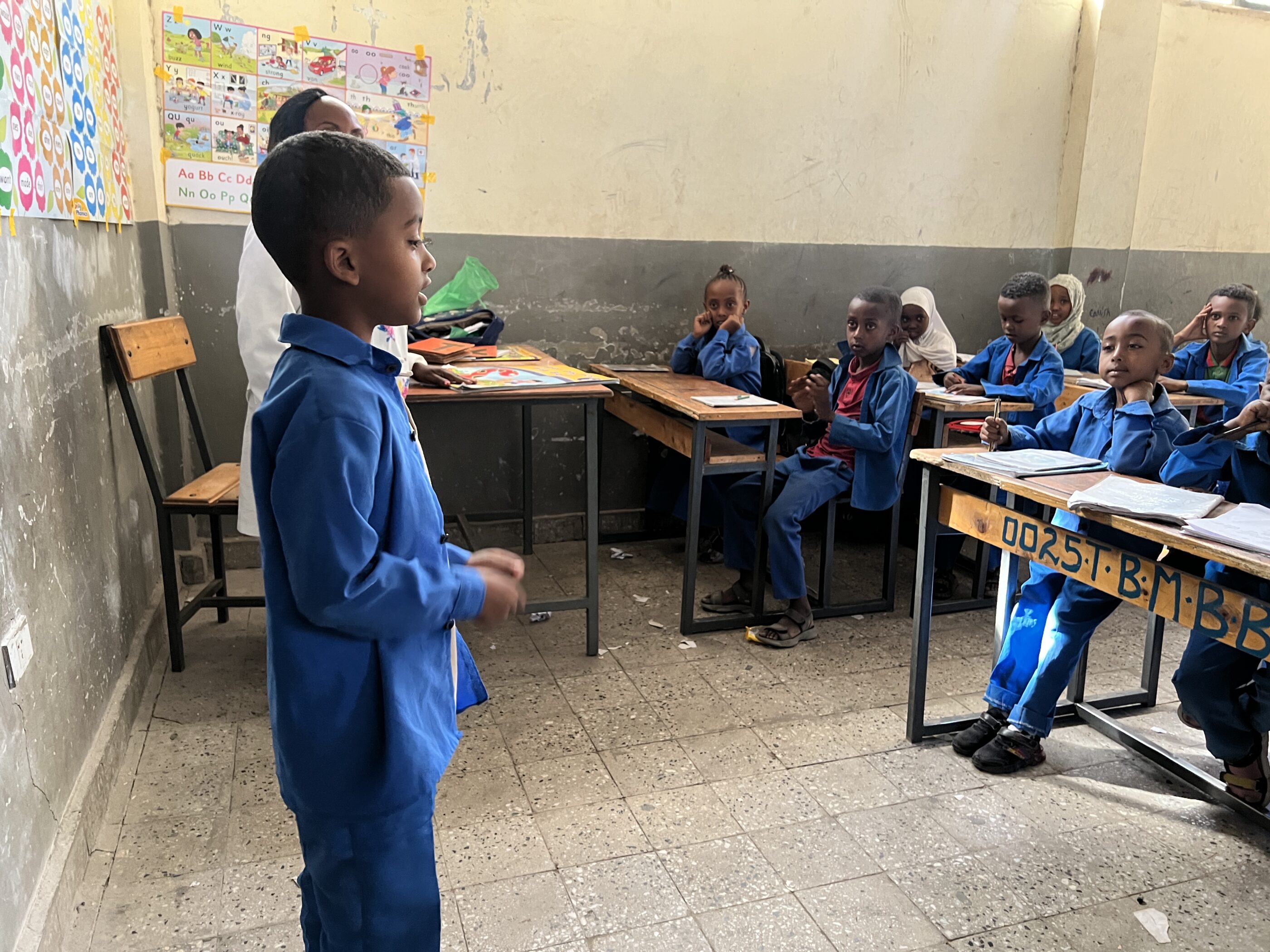
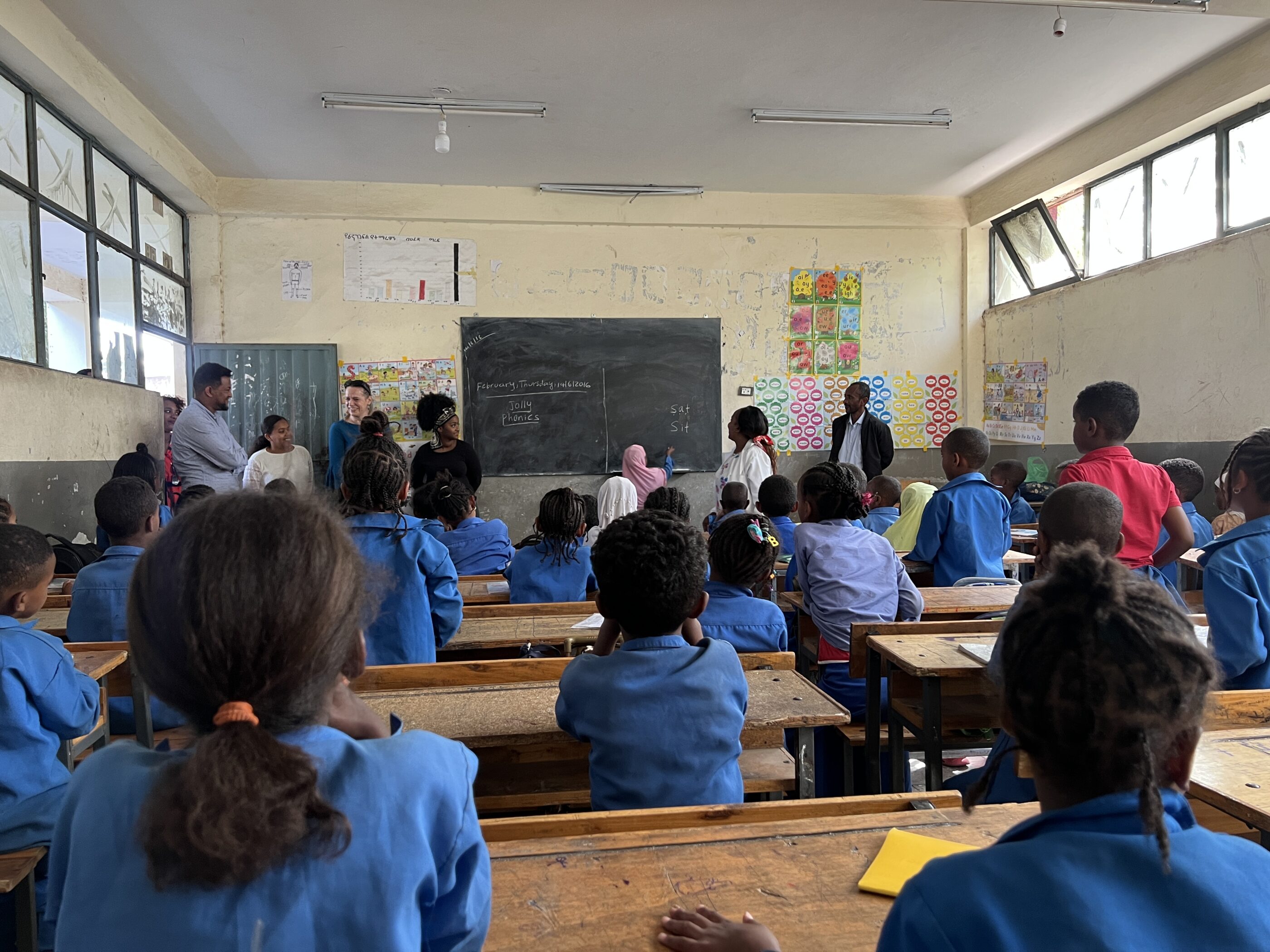
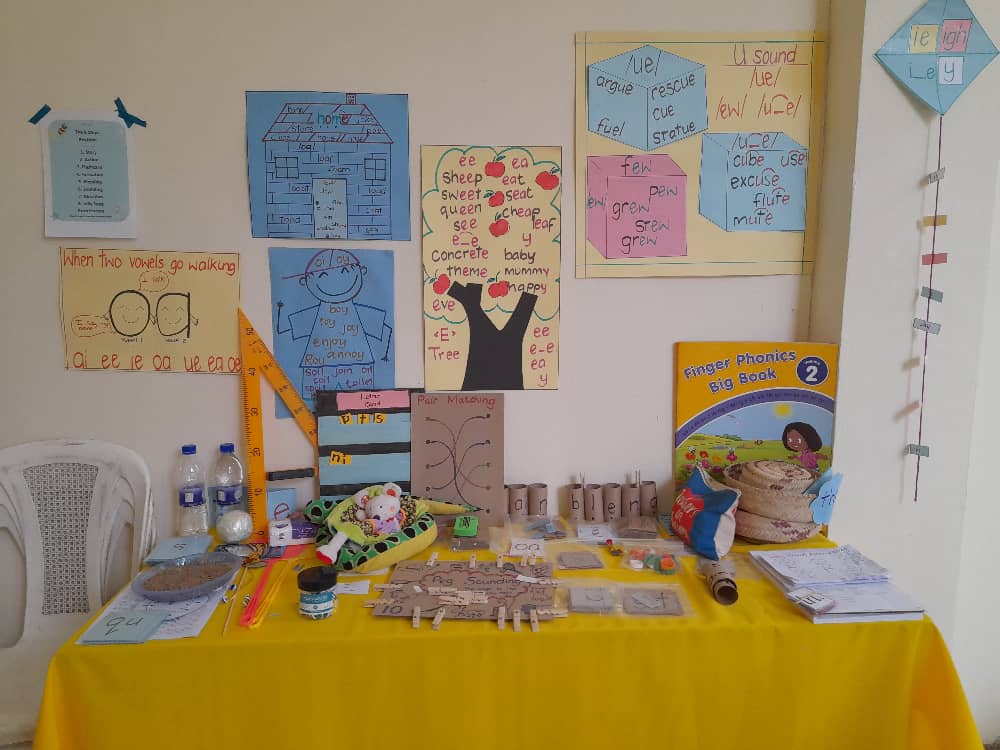
The Impact
The project reached approximately 135,600 young children this year. Literacy tests were conducted with a sample of students at both the beginning and end of the school year. These included students taught by phonics-trained teachers and those using traditional methods.
Results in Student Literacy Tests
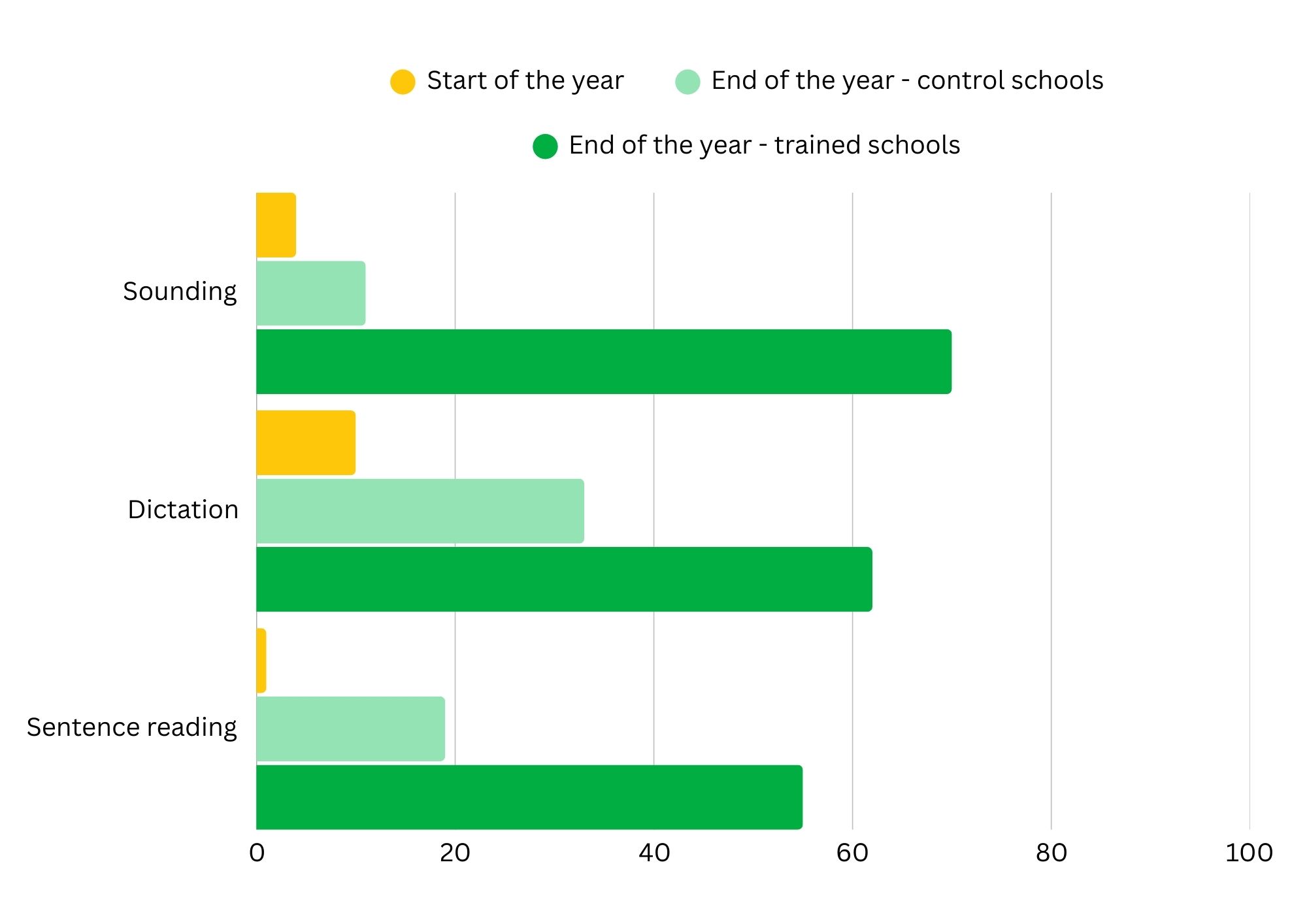
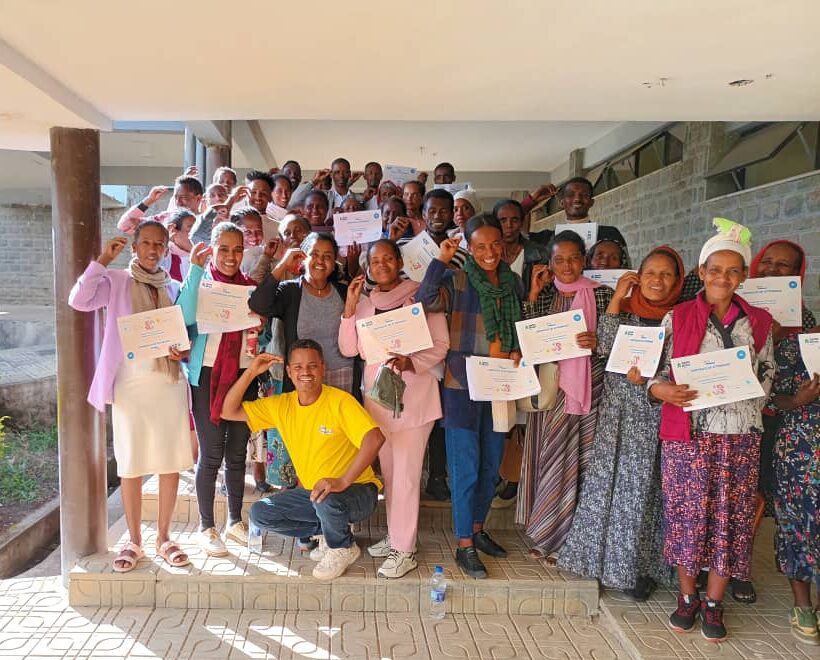
Results showed that students taught by trained teachers scored 41 percentage points higher on average than those taught using standard approaches. Specifically, students taught using the phonics method improved their literacy scores by 57 percentage points, compared to a 16 percentage point improvement in control schools.
In terms of reading age, students taught by trained teachers achieved an average reading age of 6 years and 1 month, while students in control schools averaged 5 years and 7 months.
The training also has a significant positive impact on teachers themselves. When equipped with new skills, ideas, and engaging materials, teachers feel more motivated. Seeing their students’ enthusiasm and academic progress further inspires their passion for teaching English.
A New Generation of Trainers
This year, we also held Ethiopia’s first ever Training of Trainers session. Supported by Jolly Futures and the Baillie Gifford Foundation, a five-day course in Addis Ababa was held to prepare five new trainers. These individuals were selected from previously trained teachers who had shown exceptional passion, skill, and understanding of phonics.
The training also served to strengthen the skills of our staff, building their capacity as future Trainers of Trainers. With this expanded team, we are well positioned to meet the growing demand for phonics training across Ethiopia.
We were delighted that our Country Director and experienced Jolly Phonics trainer, Elsa Kebede, was able to attend the first global Synthetic Phonics Conference held in South Africa this year, representing Ethiopia’s growing inclusion of phonics to improve literacy.
Looking Ahead
The project is now a formal collaboration with the Education Bureaus of both the Oromia and Amhara regions. In the coming year, we will launch a three-year strategy to integrate phonics teaching with the national English curriculum and to develop a long-term plan for reaching all primary teachers in these regions.
We will review and refine our monitoring systems to continue measuring training effectiveness and student learning outcomes. Additionally, we will work with Jolly Futures to develop learning materials that can be produced locally and provided sustainably by the Education Bureaus.
Most importantly, we plan to train an additional 1,000 teachers across both regions next year—reaching even more students with the gift of English literacy.
We are deeply grateful for your continued support. If you would like to help bring English literacy and accessible education to more children across Ethiopia, please consider donating or getting in touch with our team.